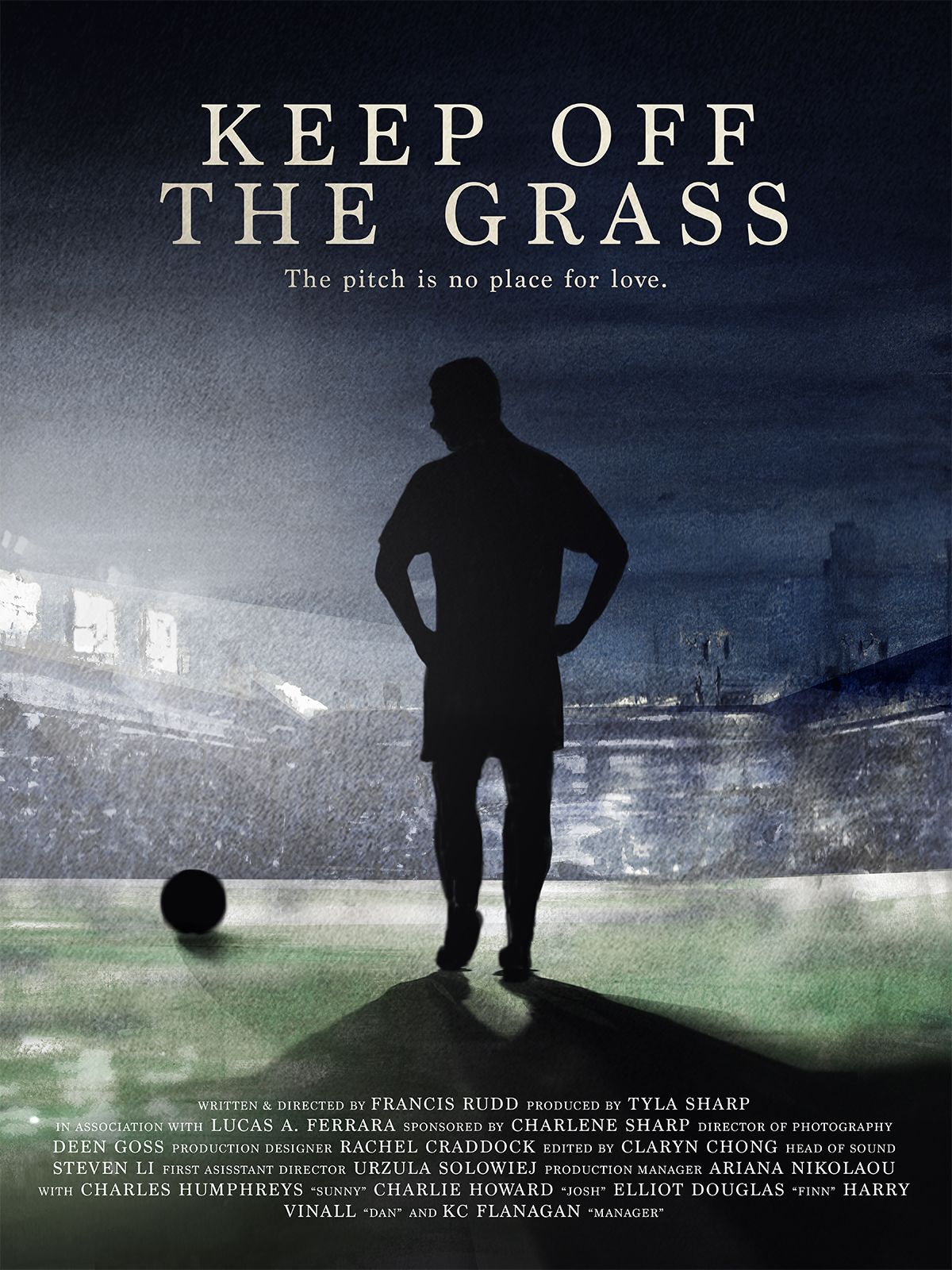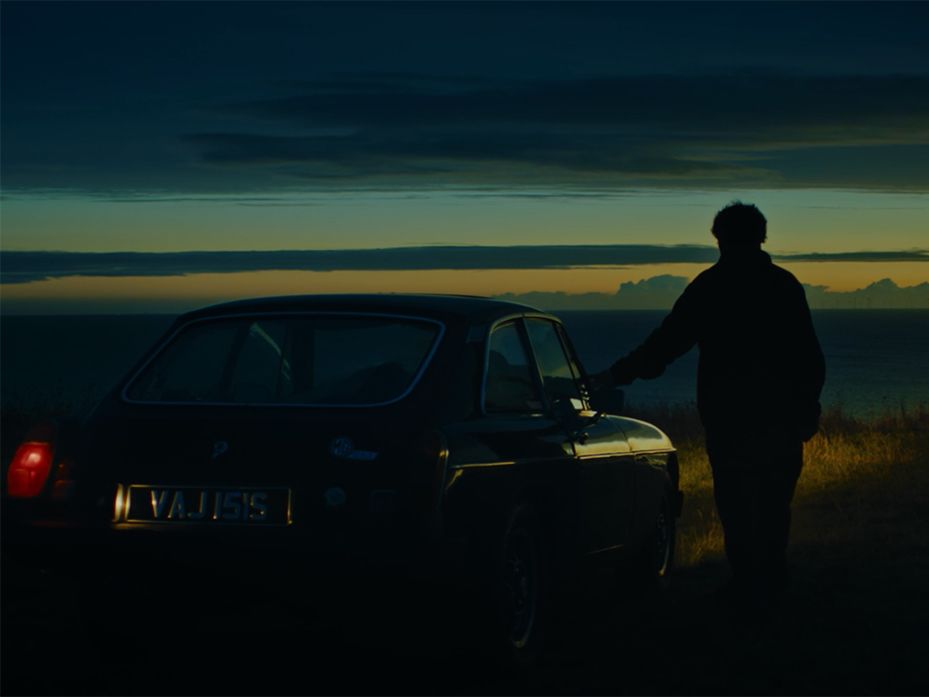
Screen School students recognised at NAHEMI Student Film Awards

- Written byChloe Murphy
- Published date 29 May 2023

As creatives, our practice enables us to reflect, connect with and transform society. Working across a range of forms, formats and disciplines, we use our expertise to develop projects that respond to major contemporary challenges - giving a voice to diverse experiences and identities in ways that make a lasting impact.
One of the ways in which we shape compelling stories is through the medium of film and screen. Earlier this year, short films produced by students in the Screen School at London College of Communication (LCC) were celebrated by the National Association for Higher Education in the Moving Image, NAHEMI, in recognition of their ability to engage with audiences through moving narratives.
As one of the leading forums of debate on filmmaking teaching practice, NAHEMI brings together many universities and educational institutions to share insights and findings led by experience, sparking vital conversations and connections with government and industry. Their National Student Film Awards aim to highlight students who have developed powerful work across different categories, with a resulting showcase of selected films shown nationally at a range of festivals and events.
Earlier this year, a number of films made by LCC students were recognised by the NAHEMI Student Awards for their imaginative concepts and technical excellence. Stay, a short film exploring the relationship between a daughter and her absent father created by MA Animation student Yu Sun, was named Best National Student Film, winner of the Animation Awards, and runner-up in the Sound Awards category. This was joined by selection for Castles, a film created by MA Film graduates, and Keep Off the Grass, a short narrative developed by BA (Hons) Film and Television students.
Directed by Francis Rudd and produced by Tyla Sharp, Keep Off the Grass centres on Sunny Cooper, an 18 year-old amateur football player struggling to accept his sexuality. As the final game of the season approaches, Sunny attempts to not only negotiate his future as a sportsman, but also his attraction to fellow teammate Josh through a narrative that charts tensions both on and off the pitch.
Since its initial release, Keep Off the Grass has also received subsequent nominations for awards such as the prestigious Iris Prize, which aims to showcase and promote LGBTQ+ stories while expanding their reach and impact, and was also screened on Channel 4.
We caught up with Tyla to discuss his experience of developing a film during Covid restrictions, the importance of gaining live experience, and balancing a focus on logistics with creative vision.
Keep Off The Grass (Trailer) | Dir. Francis Rudd, Produced by Tyla Sharp.
Tell us about your creative practice.
While there are probably common themes in the stories that I’ve told and continue to tell, I don’t specifically look for that in stories.
I only care if, well, I care, and I only care if it’s emotive, or has the potential to be.
Why did you decide to study BA (Hons) Film and Television at LCC?
Where I come from (Northampton), there isn't a great deal of film business happening. It's getting better, but I definitely felt the need to be in a more diverse place surrounded by creatives, which is why I moved to London.
LCC was always at the top of my list, though. Yes, it did and still does have a great reputation – and, of course, that was a part of my thinking, as well as the staff and alumni - but I always go with my gut, and my gut was telling me to come here.
In life, I generally believe that any situation is what you make it, and I wanted to make my degree a memorable experience. This was mostly facilitated by the College, so it really worked out well!

What inspired the idea behind Keep Off the Grass?
The idea behind Keep Off the Grass came from our wonderful writer and director, Francis Rudd, when he was asked whether he could name an openly gay footballer. To his surprise, he couldn't – and that was the spark.
I believe the initial idea to make it into a graduation film also came from a 1-minute project that Francis had made during Year 1. From there on, it developed into the film we know it to be now.
Tell us about the creative process - how did you and the team develop the film?
The development of the film started before I even joined the project - with our Assistant Producer Rachel Craddock joining Writer/Director Francis to pitch to the staff panel in order to get it commissioned. A month or so later, I interviewed and became the film's producer. From then on, it was just constant work to get the film made.
In all honesty, the production was incredibly smooth sailing, which is a testament to the devoted crew that came together to tell an important story. A lot of the script development was just about talking to people and seeing what worked, but in the end, so much of the script had to change because of COVID. It was a pretty bad situation, and we had no idea whether we'd even be able to shoot, so that really threw a spanner in the works.
The ending had to be re-written and certain scenes had to be scrapped, but we overcame these challenges and created a film that I think we can all be proud of.

What were your key responsibilities as producer?
This was my first time producing, so I was largely trying to figure it all out on the job. I only knew that my role was to make the film happen - to bring it to audiences.
If I’m honest, I worried that I'd ruin the film because of my inexperience, but I got stuck in and got the job done. These productions are only partially funded once commissioned, so my focus was on ensuring we could raise enough money to fund the production.
Aside from that, I’ve found that producing really is just about pushing the film to be the best it possibly can across all departments. It's an incredibly creative role, and certainly one that my love continues to grow for.
What were your highlights of the experience?
My personal highlights were the days we spent shooting, the time I found out it was going to be shown on Channel 4, and when it screened in the Cineworld in my hometown!
We worked with such a great and kind cast (Charles Humphreys, Charlie Howard, Harry Vinall, Elliot Douglas, KC Flanagan), who were a pleasure on set and our First Assistant Director, Ula Solowiej, really created a great atmosphere, so it was all round a very memorable experience.
One very surreal moment was when I was in the bathroom in Cineworld for the Northampton Film Festival - when I came out, there was a group of adults who started clapping. I did wonder who they were clapping for, but since they were looking at me and I was the only one there, I realised that it was for me and the film. It received a lot of praise that night and is still one of the best weekends of my life.

How did you find out about the NAHEMI Awards, and why did you decide to apply?
LCC’s wonderful Festival Coordinator Mary Davies applied on our behalf. She’s so helpful when it comes to festivals and really knows what’s best for each of the many, many projects that she sees at the College.
What does being selected by NAHEMI mean to you?
For me, I suppose it’s just an added layer of recognition. From the moment that we started making the film, it was never about being the best, or wanting to appear better than everyone else: our genuine aim was to share this story to the world, and to bring it to some people’s awareness. I think we’ve achieved that goal more than we could have imagined.
Generally speaking, regardless of any production execution on any film - whether it be a crazy high-end or otherwise - the intention deserves to be recognised as well as the filmmaking. That’s what it means to me.

What did you most enjoy about your time at LCC?
Meeting the wonderful and skilled people on my course – I’ve made friends for life.
Personally, I also grew so much thanks to those friends, tutors, and the course itself. It’s all about environment for me, and I left with a strong sense of self and a newfound quiet confidence.
What tips would you give to other students who are interested in exploring film production?
If you’re interested in becoming a producer, I can only give advice on what this means to me. I’ve embraced being a creative producer (which, in all honesty, I see as no different), so my advice would be to know your worth as a creative first.
This is really important because a lot of the time, the crew might think that the producer is there to cater to their needs alone, and some directors may think that you’re there to do all the nitty gritty so that they can become the auteur they’ve always dreamed of. Being a producer, however, is about fulfilling your own creative needs and leading the project to be the best it can be - bringing a fresh and emotive piece of work to audiences, and giving a voice to unique stories that need to be told.
Really, I’d suggest starting off by expressing to other creatives that you’re interested in producing, before forming a small group and making your first thing. Most importantly, understand the value that you can add.
Producing is about listening, nurturing and thinking ahead where logistics and budget are concerned, so there’s a balance to be found. In a short time, this will all feel natural if it’s what you love to do.
Related links:
- Explore more of Tyla's work on his website.
- Learn more about the NAHEMI Student Awards.
- Find out more about the Screen School at London College of Communication.



